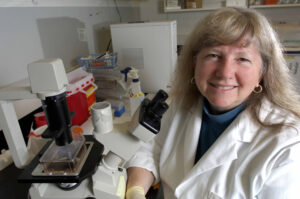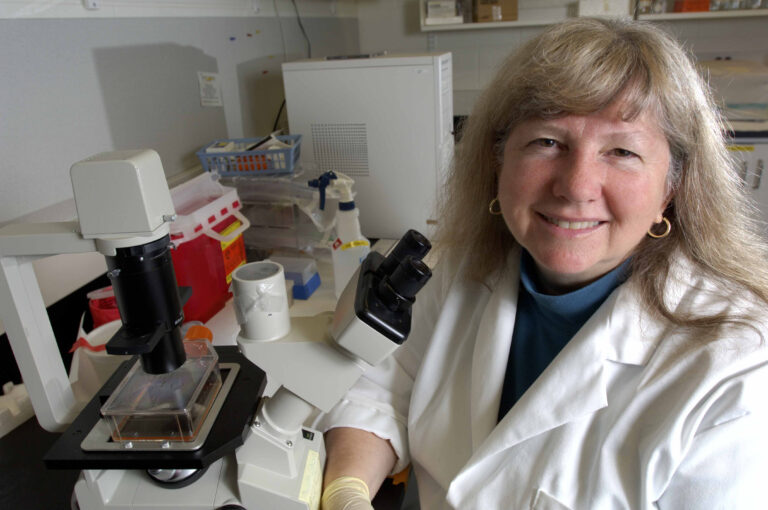A Michigan State University research team is the first to show how a common bacterium found in improperly cooked chicken causes Guillain-Barre Syndrome, or GBS.
The federally funded research, now published in the Journal of Autoimmunity, not only demonstrates how this food-borne bacterium, known as Campylobacter jejuni, triggers GBS, but offers new information for a cure.
If chicken isn’t cooked to the proper minimum internal temperature, bacteria can still exist.
“What our work has told us is that it takes a certain genetic makeup combined with a certain Campylobacter strain to cause this disease,” said Linda Mansfield, lead author and MSU College of Veterinary Medicine professor. “The concerning thing is that many of these strains are resistant to antibiotics and our work shows that treatment with some antibiotics could actually make the disease worse.”
GBS is the world’s leading cause of acute neuromuscular paralysis in humans and despite much speculation, the exact mechanisms of how this autoimmune disease develops have been widely unknown.
“We have successfully produced three preclinical models of GBS that represent two different forms of the syndrome seen in humans,” Mansfield said. “Our models now provide a unique opportunity to understand how your personal genetic type may make you more susceptible to certain forms of GBS.”
Those suffering from GBS can initially experience vomiting and diarrhoea, but can often write the symptoms off as eating bad food. One to three weeks later, they can begin to develop weakness and tingling in the feet and legs. Gradually, paralysis can spread to the upper body and arms, and even a respirator may be needed for breathing.



